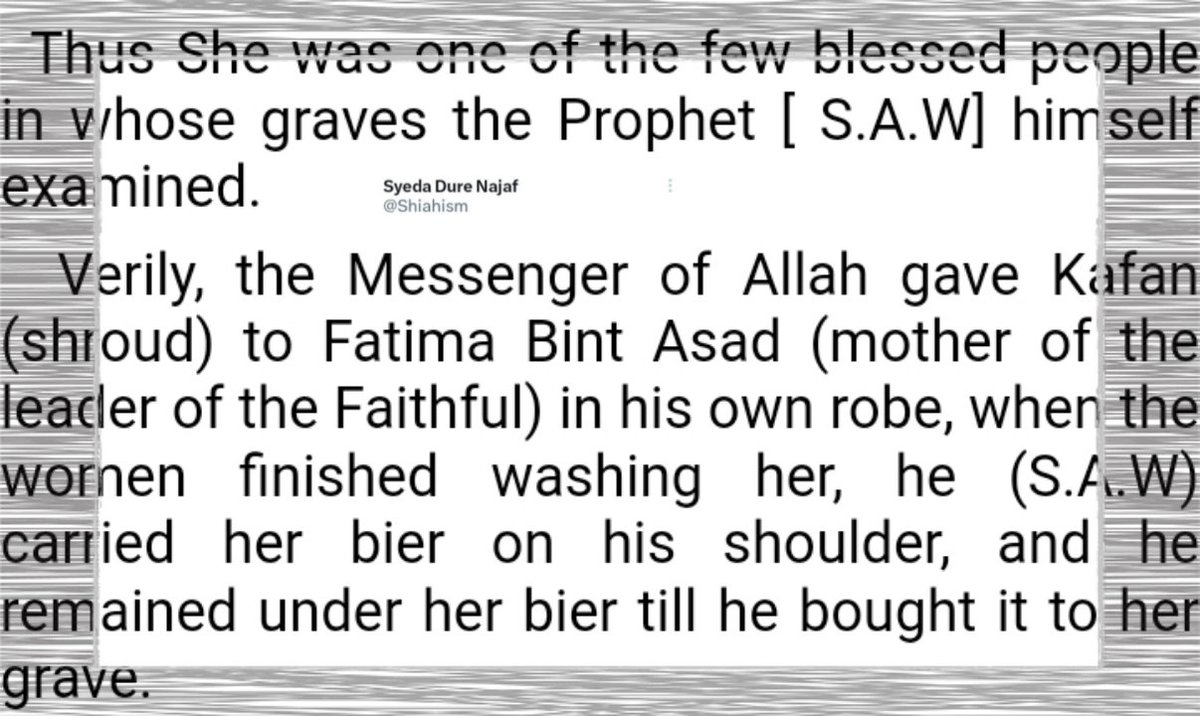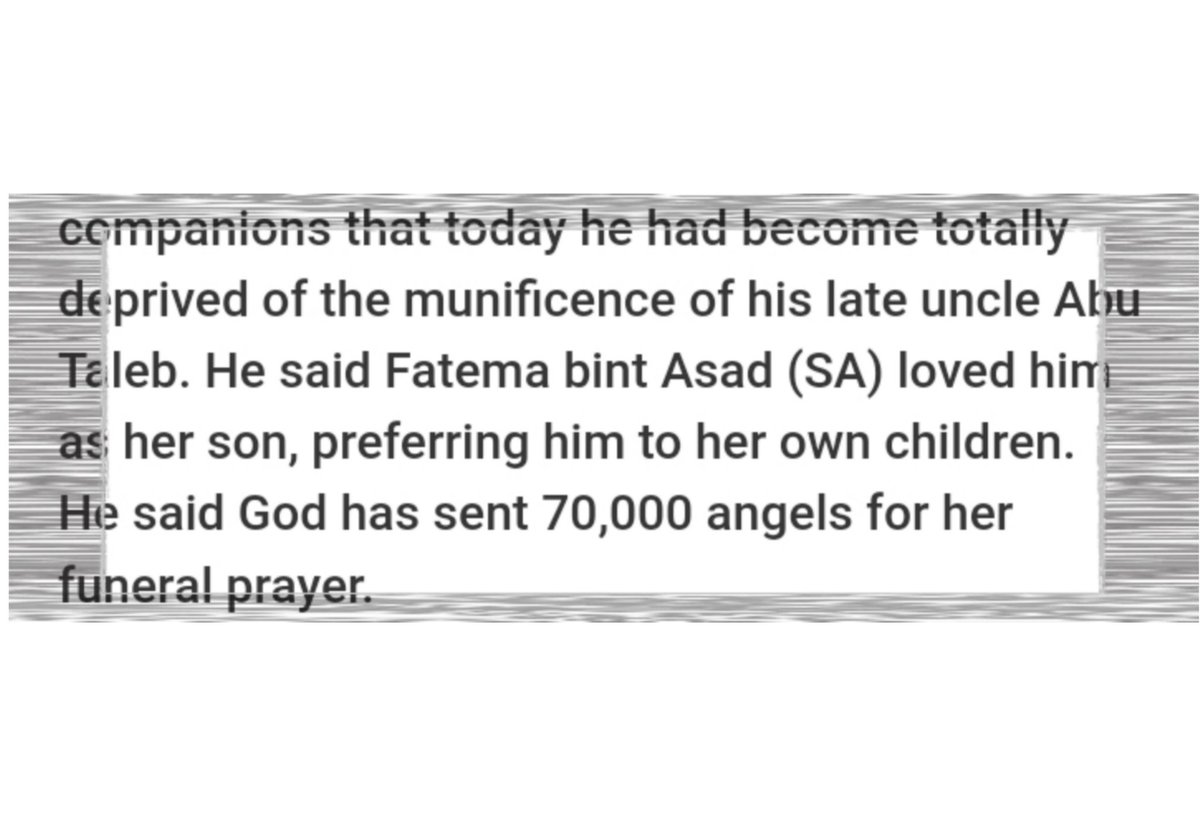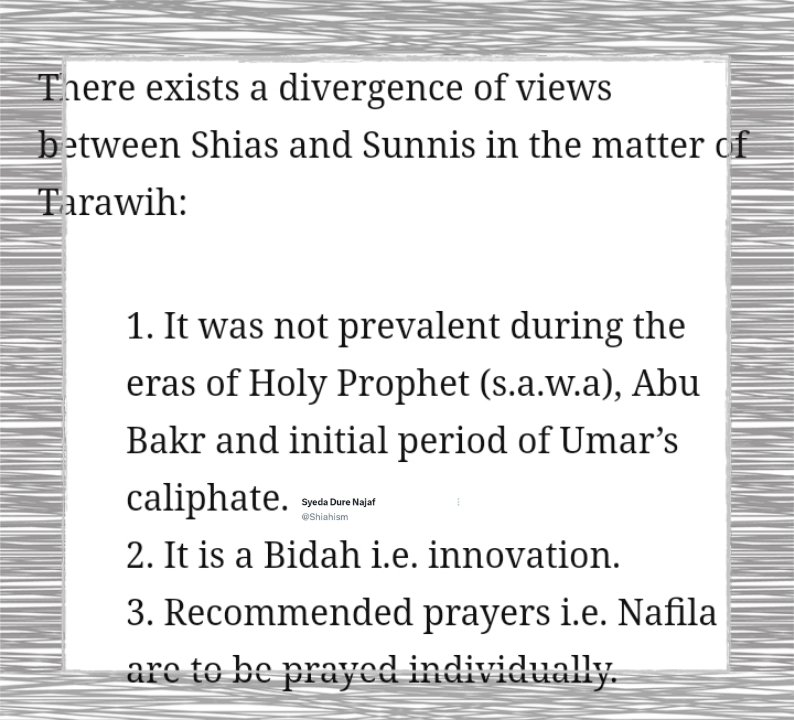
In 4 A.H.(A.D.626) Fatima bint Asad, the widow of Abu Talib and the mother of Ali, died in Medina. She had reared Muhammad (s) the as her own son, and he called her his mother.
She was the second lady in Arabia to accept Islam,
The first being Khadija, the wife of the Prophet.
She was the second lady in Arabia to accept Islam,
The first being Khadija, the wife of the Prophet.
When his foster-mother died, he attended the funeral, and said: “May God bless your noble soul. You were to me like my own mother. Your aim in doing so was to please God with your deeds.” He gave his own cloak for her shroud, and she was given burial in it.
Prophet Muhammad (s) often said, “I was an orphan and she made me her son.
She was the kindest person to me after Abu Talib.”
She was the kindest person to me after Abu Talib.”

Anas bin Malik says that when the Prophet [SAW] got news of the death of Fatimah bint Asad, he immediately went to her house, sat beside her and prayed for her. 

When the burial was over, Umar ibn Khattab said to the Prophet that he had treated her in an unprecedented way.
The Prophet replied that he held her in great esteem as one holds his mother. Gabriel told me she was a saintly woman and entered Paradise.
The Prophet replied that he held her in great esteem as one holds his mother. Gabriel told me she was a saintly woman and entered Paradise.
So profound was his state of grief that after the burial that the Holy Prophet (S) sat down beside her grave for lengthy moments, weeping and supplicating to God. While returning from the Jannat al-Baqie Cemetery he told his companions 

If Khadija was the first Muslim lady and the greatest benefactress of Islam, Fatima bint Asad was the second Muslim lady, and the second greatest benefactress of Islam. May God be pleased with His slaves, Khadija and Fatima bint Asad, and may He bless them.
• • •
Missing some Tweet in this thread? You can try to
force a refresh
 Read on Twitter
Read on Twitter

















